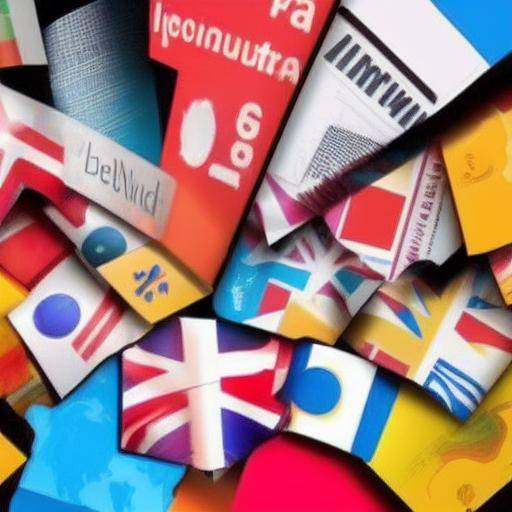
In a globalized world, intercultural communication has become a crucial element for success in all spheres of life. Effective communication skills in a culturally diverse environment are not only valuable, but essential for mutual understanding, collaboration and conflict resolution in an increasingly connected world. In this article, we will explore in detail the importance of intercultural communication, the communication skills necessary for this type of interaction and the relevance of cultural diversity today.
Introduction
In the current era of globalization, societies and businesses are constantly interacting with individuals and groups of diverse cultures. Intercultural communication, which is defined as interaction between people with different cultural backgrounds, is essential to addressing differences, fostering inclusion and achieving mutual understanding. This article will provide an integral vision of intercultural communication, highlighting its importance in a globalized world and the key skills required to foster effective communication in multicultural environments.
History and Background
Intercultural communication has its roots in human history, where interactions between different cultures have led to significant advances in society, trade and technology. From the old trade routes to the era of colonization, the interaction between cultures has shaped the world in which we live. Over the centuries, communication between different communities has evolved, adapting to technological advances and social changes.
It is essential to understand how cultures have influenced each other over time to understand the importance of intercultural communication today. The exchange of ideas, values and traditions through different cultures has been fundamental to human progress and the construction of inclusive societies. Moreover, history gives us lessons on the challenges and conflicts that arise when intercultural communication fails, thus demonstrating its continuing importance in a multicultural world.
Analysis in Deep
In the modern world, intercultural communication is essential in a wide range of contexts, including business, international diplomacy, education and tourism. Communication skills in a multicultural environment not only involve the domination of foreign languages, but also the ability to understand and respect the cultural norms of others, and the willingness to adapt to different non-verbal communication styles. In addition, successful intercultural communication requires empathy, flexibility and mental openness to overcome linguistic and cultural barriers.
Cultural diversity enriches our lives, generating a wide range of perspectives, innovative ideas and opportunities for collaboration. However, it also presents challenges in terms of misunderstandings, stereotypes and potential conflicts. Therefore, it is crucial to have strong intercultural communication skills to maximize the benefits of cultural diversity.
Comprehensive review
Understanding and implementing intercultural communication skills are key to maintaining strong interpersonal relationships, promoting inclusion and diversity in working environments, and fostering global cooperation in an interconnected world. Companies and institutions that recognize the importance of intercultural communication are able to build diverse teams, meet the needs of a multicultural clientele and gain competitive advantages in the global market.
Comparative analysis
Compared to traditional communication skills, intercultural approaches require greater sensitivity to cultural differences, clearer and more explicit communication, and the ability to adapt to the needs and expectations of various audiences. Intercultural communication skills go beyond language domain and focus on building bridges between cultures, building empathy and mutual respect, and negotiating capacity in a multicultural environment.
Practical Tips and Accessible Recommendations
To improve intercultural communication, it is essential to develop active listening skills, learn about the cultural norms of other communities, avoid hasty judgments and be willing to learn from different perspectives. Intercultural education, exchange of experiences, and participation in activities that foster diversity are key steps to improve intercultural communication skills.
Practical Tips
- Participate in language courses and foreign culture.
- Encourage curiosity and respect for other cultures.
- Practice active listening and avoid cultural prejudices.
Industry Perspectives and Expert Reviews
Leaders in the business and academic sphere recognize that intercultural communication is a fundamental pillar for success in a globalized environment. Diversity within organizations is increasingly valued, as it provides a wide range of perspectives and competencies. Experts agree that fostering a culture of inclusion and diversity through effective intercultural communication is essential for sustainable growth and innovation in organizations.
Opinion of Experts
"Intercultural communication is crucial for the success of managing multicultural teams in a globalized business environment. The ability to understand and value cultural differences is a key component for building efficient and collaborative teams." - Elena Gómez, Expert in Multicultural Management.
Case Studies and Real Life Applications
Successful applications of intercultural communication are reflected in global companies that have managed to develop effective communication strategies to reach different markets. On the other hand, the challenges of intercultural communication are evident in diplomatic situations, where cultural differences can affect international negotiations and political agreements.
Case Study: Global Marketing Strategies
An electronic product company implemented a global marketing strategy that took into account local cultural sensitivities. This adaptation enabled the company to establish strong relationships with consumers from diverse cultures and significantly increase its income in international markets.
Future Trends and Predictions
As the world becomes increasingly interconnected, intercultural communication will continue to be a relevant and of great importance. Businesses and organizations are expected to strengthen their efforts in the development of intercultural skills, and Governments seek to promote intercultural understanding in order to achieve peace and global cooperation. In addition, the advancement of digital technology will also influence the way we communicate interculturally, opening up new possibilities and challenges.
Conclusion
In conclusion, intercultural communication plays a key role in promoting mutual understanding, diversity, and collaboration in a globalized world. Effective communication skills in a multicultural environment are essential to building strong relationships, establishing diverse teams and sustainable prosperity. Understanding and implementing intercultural communication benefits societies, businesses and at the individual level, promoting a more inclusive and harmonious world.
Frequently asked questions
Why is intercultural communication important in the workplace?
Intercultural communication in the workplace is crucial because it allows the integration of multicultural teams, promotes understanding and respect among colleagues from different backgrounds, and ultimately contributes to the creation of more inclusive and productive working environments.
How can I improve my intercultural communication skills?
To improve intercultural communication skills, it is advisable to learn about the cultural norms of other communities, practice active listening, and participate in intercultural experiences. Learning foreign languages and participating in cultural exchange programmes are also effective tools for improving intercultural communication skills.
What are the common challenges in intercultural communication?
Some common challenges in intercultural communication include misunderstandings due to differences in body language, voice tone or cultural perceptions. Stereoty and prejudice can also hinder intercultural communication.
What are the benefits of fostering cultural diversity in an organization?
Promoting cultural diversity in an organization not only promotes an enriching working environment, but also stimulates the creativity, innovation and ability of the company to effectively address different markets.
What role does intercultural communication play in the field of education?
In the field of education, intercultural communication is critical to fostering an inclusive learning environment, where cultural differences are valued and intercultural understanding between students and teachers is promoted.
What is the impact of intercultural communication on international diplomacy?
Intercultural communication has a significant impact on international diplomacy, as the understanding of cultural norms and sensitivities is essential for establishing sound diplomatic relations and resolving international conflicts.
How can companies foster a culture of intercultural communication?
Companies can foster a culture of intercultural communication through training in cultural diversity, the promotion of inclusive values, and the implementation of policies that value and respect cultural differences among employees.
Conclusion
Intercultural communication is an essential component in an increasingly interconnected and diverse world. Developing intercultural communication skills and fostering mutual understanding not only enriches our personal and professional lives, but also promotes a more inclusive and harmonious world for future generations. It is in our hands to cultivate the ability to communicate effectively across cultural borders to build a more prosperous and united global future.
With this article, it is expected to have provided a comprehensive view on the importance of intercultural communication, the necessary communication skills and the relevance of cultural diversity in the current world.
It recalls that understanding and respecting cultural differences is essential for building bridges between communities and achieving success in an increasingly globalized world.



























